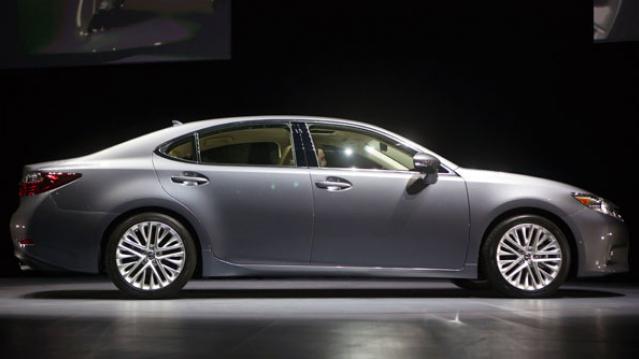Americans Are Happier with This Car Brand Than Any Other

Americans may love their cars, but these days they love them a little less.
Consumer satisfaction with their cars has fallen for the third consecutive year, reflecting unhappiness with increasing recalls and rising prices, according to new data from the American Customer Satisfaction Index.
Car reliability has improved overall in the past decade but the number of recalls is at an all-time high. “This should not happen with modern manufacturing technology and has negative consequences for driver safety, costs, and customer satisfaction,” ACSI Chairman and founder Claes Fornell said in a statement.
Car owners in the second quarter of 2015 reported a 40 percent increase in recalls year over year. The most high profile recalls involve Takata airbags, affecting more than 17 million older-model vehicles built by 11 different auto makers.
Related: Senators Urge Recall of All Vehicles with Takata Airbags
Looking at individual brands, the index shows that Americans prefer Japanese and luxury brand cars, with Lexus displacing Mercedes Benz as the brand with the highest overall satisfaction (84 out of 100). Mercedes tied for second place with Acura and Lincoln.
The average for all autos fell 3.7 points to 79. The only American automaker to rank above average was Ford with a score of 81. General Motors and Chrysler saw their scores fall modestly to 79 and 75 respectively.
Despite a growing decline in satisfaction, Americans are holding onto their vehicles longer than ever. The average age of cars and light trucks is now 11.5 years old, according to a report issued last month by IHS Automotive.
Top Reads from the Fiscal Times:
- Big Surprise: Hispanic Voters Can’t Stand Donald Trump
- How a Biden-Warren Ticket Could Transform the Campaign
- Air Force Brushes Off $27 Billion Accounting Error
Increasing Number of Americans Delay Medical Care Due to Cost: Gallup

From Gallup: “A record 25% of Americans say they or a family member put off treatment for a serious medical condition in the past year because of the cost, up from 19% a year ago and the highest in Gallup's trend. Another 8% said they or a family member put off treatment for a less serious condition, bringing the total percentage of households delaying care due to costs to 33%, tying the high from 2014.”
Number of the Day: $213 Million

That’s how much the private debt collection program at the IRS collected in the 2019 fiscal year. In the black for the second year in a row, the program cleared nearly $148 million after commissions and administrative costs.
The controversial program, which empowers private firms to go after delinquent taxpayers, began in 2004 and ran for five years before the IRS ended it following a review. It was restarted in 2015 and ran at a loss for the next two years.
Senate Finance Chairman Chuck Grassley (R-IA), who played a central role in establishing the program, said Monday that the net proceeds are currently being used to hire 200 special compliance personnel at the IRS.
US Deficit Up 12% to $342 Billion for First Two Months of Fiscal 2020: CBO

The federal budget deficit for October and November was $342 billion, up $36 billion or 12% from the same period last year, the Congressional Budget Office estimated on Monday. Revenues were up 3% while outlays rose by 6%, CBO said.
Hospitals Sue to Protect Secret Prices

As expected, groups representing hospitals sued the Trump administration Wednesday to stop a new regulation would require them to make public the prices for services they negotiate with insurers. Claiming the rule “is unlawful, several times over,” the industry groups, which include the American Hospital Association, say the rule violates their First Amendment rights, among other issues.
"The burden of compliance with the rule is enormous, and way out of line with any projected benefits associated with the rule," the suit says. In response, a spokesperson for the Department of Health and Human Services said that hospitals “should be ashamed that they aren’t willing to provide American patients the cost of a service before they purchase it.”
See the lawsuit here, or read more at The New York Times.
A Decline in Medicaid and CHIP Enrollment

Between December 2017 and July 2019, enrollment in Medicaid and the Children's Health Insurance Program (CHIP) fell by 1.9 million, or 2.6%. The Kaiser Family Foundation provided an analysis of that drop Monday, saying that while some of it was likely caused by enrollees finding jobs that offer private insurance, a significant portion is related to enrollees losing health insurance of any kind. “Experiences in some states suggest that some eligible people may be losing coverage due to barriers maintaining coverage associated with renewal processes and periodic eligibility checks,” Kaiser said.


